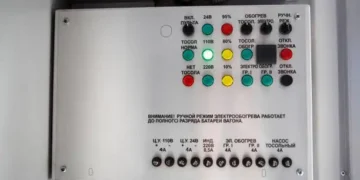As a food packaging and contact material manufacturer, you know that your role goes far beyond simply creating attractive or durable packaging. Your materials play a crucial role in the safety and quality of the food products they contain. This is where HACCP Certification comes into play. But why does it matter so much to your industry? Let’s take a closer look at how HACCP Certification is not just a buzzword but an essential certification for anyone working in food packaging and materials.
What Is HACCP Certification and Why Is It So Important?
HACCP stands for Hazard Analysis Critical Control Point. It’s a food safety management system that identifies and prevents potential hazards in food production processes. For food packaging and contact materials, it’s not just about ensuring that food stays fresh in the packaging but also preventing contamination risks from the packaging itself.
You’re probably thinking: “But my role is just packaging—how could packaging be a source of contamination?” Here’s the thing: food packaging isn’t just the external layer of protection. It interacts with the food inside, and if it’s not made, stored, or handled properly, it could end up introducing harmful bacteria, chemicals, or allergens.
HACCP Certification ensures that your manufacturing processes are designed to prevent any such risks. It’s about creating a system that makes your operation compliant with food safety regulations and, more importantly, keeps consumers safe. Whether you’re producing plastic wraps, cans, or cartons, understanding and implementing HACCP is vital for meeting the stringent standards that modern consumers expect.
Why HACCP Certification Is Essential for Food Packaging Manufacturers
If you haven’t yet embraced HACCP Certification, now is the time to consider it. It’s not just about following regulations—it’s about creating an industry-leading reputation for your brand and taking food safety seriously. Here’s why HACCP Certification should be a top priority for you:
1. It’s a Regulatory Requirement
For many markets, HACCP Certification is not optional. Countries and regions with strict food safety regulations—like the European Union, the U.S., and others—demand compliance with HACCP standards. Without certification, you risk being excluded from certain markets or facing legal issues that could tarnish your reputation.
2. Consumer Trust
In today’s world, consumers are more concerned about the safety and origin of their food than ever before. If you’re manufacturing packaging that’s meant to come into contact with food, showing that you’re HACCP Certified sends a powerful message. It shows that you prioritize food safety and that you’ve met internationally recognized standards.
3. Prevents Contamination Risks
Food packaging materials might seem harmless, but they could be harboring dangerous contaminants. From harmful chemicals used in the manufacturing process to cross-contamination during storage or transport, HACCP Certification helps you identify and eliminate these risks before they reach the food.
4. Competitive Advantage
In a crowded market, having HACCP Certification can differentiate your business. Clients want peace of mind knowing that their products are safe, and offering certified, safe food contact materials can make you the preferred choice. It’s one of those advantages that sets your business apart.
5. Protects Your Brand and Reputation
The last thing you want is to be associated with a food safety scandal. A failure to comply with HACCP standards could lead to recalls, lawsuits, or irreparable harm to your brand. HACCP Certification provides a safeguard against these risks, ensuring that your manufacturing processes are compliant and reliable.
The Key Benefits of HACCP Certification for Food Packaging Manufacturers
Let’s take a deeper dive into the tangible benefits of becoming HACCP Certified for food packaging and contact material manufacturers.
1. Improved Product Quality
At the core of HACCP is the focus on identifying critical control points in the manufacturing process. When you pinpoint where contamination risks could arise and take steps to mitigate them, the quality of your end product improves drastically. Safe packaging means safe food—and that’s exactly what your customers expect.
2. Streamlined Operations
With HACCP Certification, you’re forced to examine your entire manufacturing process with a fine-tooth comb. This includes everything from raw materials to finished product packaging. The result? A smoother, more efficient process that minimizes waste, errors, and inefficiencies. Plus, your staff will be better trained to recognize issues before they become problems.
3. Enhanced Supplier Relationships
More and more, food manufacturers are requiring their suppliers to have HACCP Certification before they’ll do business with them. By becoming HACCP Certified, you open the door to more partnerships and collaborations. You’re showing your suppliers that you take food safety seriously, which increases trust and long-term collaboration.
4. Increased Market Access
Many international markets require HACCP Certification for all food-related products, including packaging materials. This certification can open doors to global markets, allowing you to expand your business into regions where food safety is paramount. Think of it as a ticket to a bigger pool of potential customers.
5. Reduced Liability
Non-compliance with food safety regulations could lead to recalls, lawsuits, or worse. By getting HACCP Certified, you protect your company from potential legal issues. It ensures that your operations adhere to the highest safety standards, so you don’t have to worry about costly mistakes down the road.
How to Achieve HACCP Certification for Your Business
Now that you know why HACCP Certification is essential, you might be wondering how to go about achieving it. While it may seem like a daunting task, the process can be broken down into clear steps.
1. Identify Your Critical Control Points
The first step is understanding your manufacturing processes and identifying areas where contamination could occur. These are your Critical Control Points (CCPs). For example, if you’re working with food contact materials that could react with food, you’ll need to set up strict guidelines to control this risk.
2. Implement Preventative Measures
Once you’ve identified your CCPs, it’s time to establish control measures. This could be anything from changing the way you store raw materials to revising how you clean your manufacturing equipment. The goal is to ensure that you’re eliminating risks before they happen.
3. Monitor and Maintain Controls
HACCP isn’t a one-time fix—it’s a continuous process. After implementing controls, you need to monitor them regularly. This could involve inspecting raw materials, performing in-process checks, or even using technology to track compliance with your safety measures.
4. Employee Training
For your HACCP Certification to be effective, your staff needs to be properly trained. That means educating them about the principles of HACCP, how to monitor controls, and what to do in case of non-compliance. Regular training ensures that everyone is on the same page when it comes to food safety.
5. Documentation and Record Keeping
A crucial aspect of HACCP Certification is maintaining detailed records. You’ll need to document everything from the sourcing of materials to the cleaning protocols followed. This not only helps you stay compliant but also ensures that you can quickly address any issues if something goes wrong.
6. Certification Audit
Finally, after all the hard work, you’ll need to undergo an official audit by a recognized certification body. They’ll review your processes, verify your documentation, and ensure you’re meeting all necessary food safety standards. Once you pass, you’ll be awarded HACCP Certification.
Final Thoughts: HACCP Certification for Long-Term Success
At the end of the day, HACCP Certification is about more than just ticking a box for compliance—it’s about embedding a culture of food safety into every aspect of your packaging and contact material manufacturing. It’s about demonstrating to your clients, suppliers, and consumers that you care about the safety and quality of the products they interact with daily.
By getting HACCP Certified, you’re setting your business up for success in a competitive marketplace. You’re ensuring the safety of the products you create, reducing risks, and building a brand that’s trusted by both businesses and consumers alike.
So, don’t wait for the competition to catch up. Start the journey toward HACCP Certification today, and take your food packaging and contact materials to the next level of quality, safety, and compliance.


























